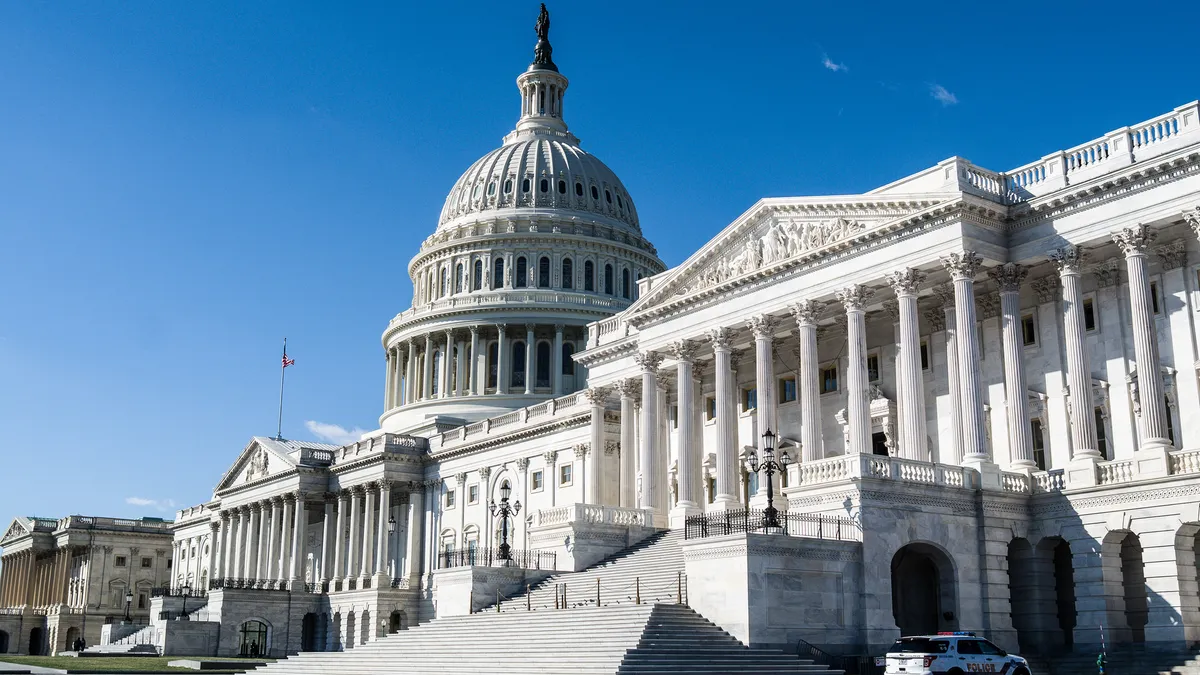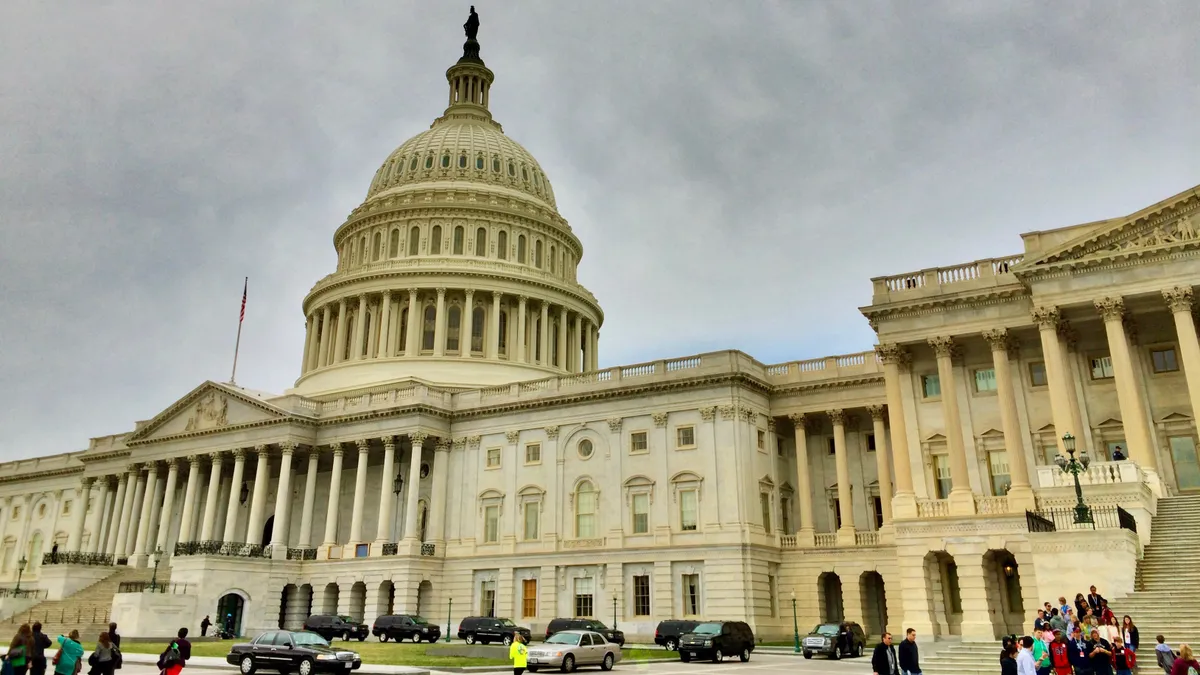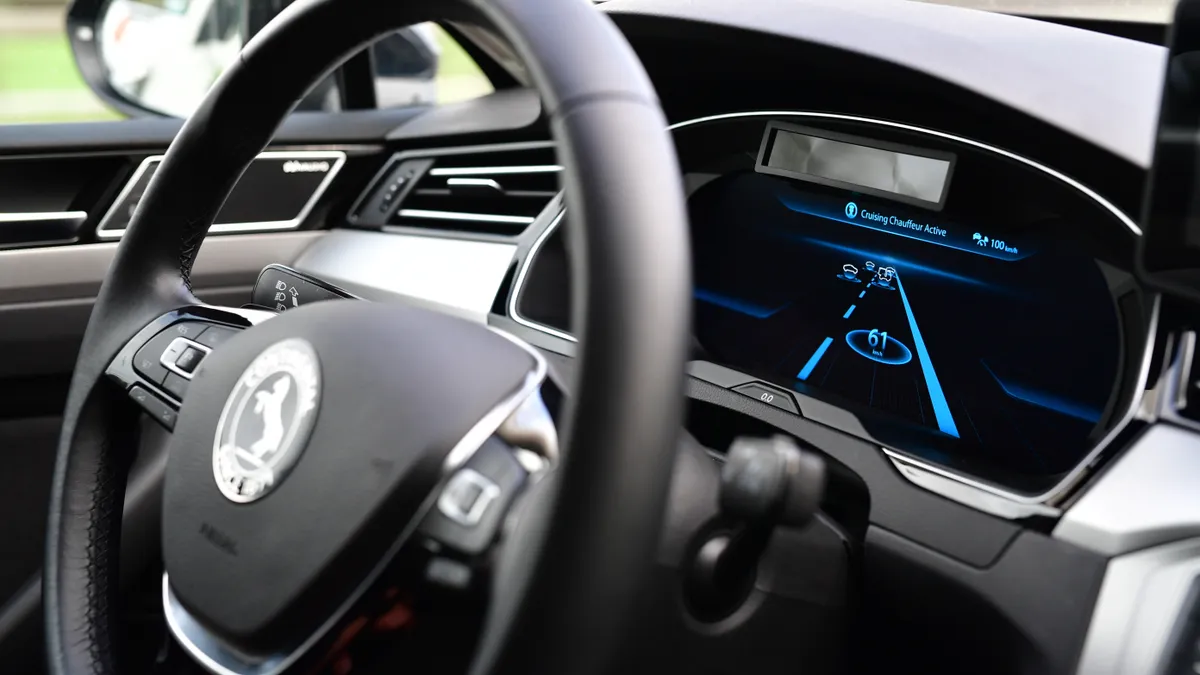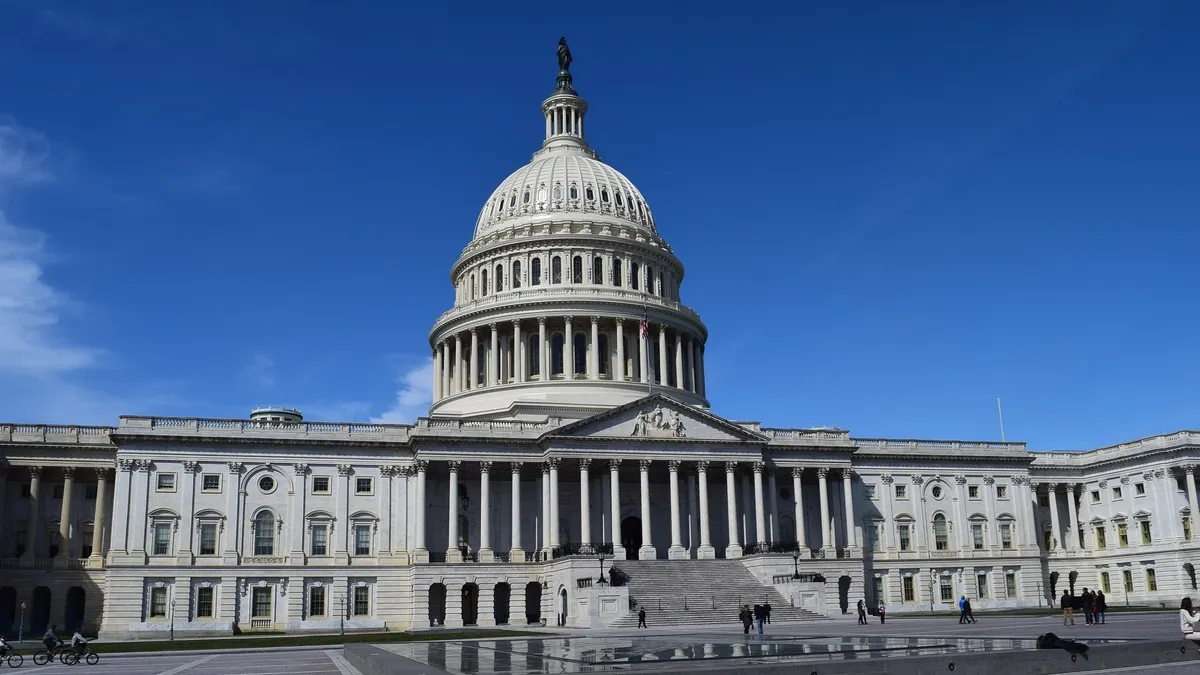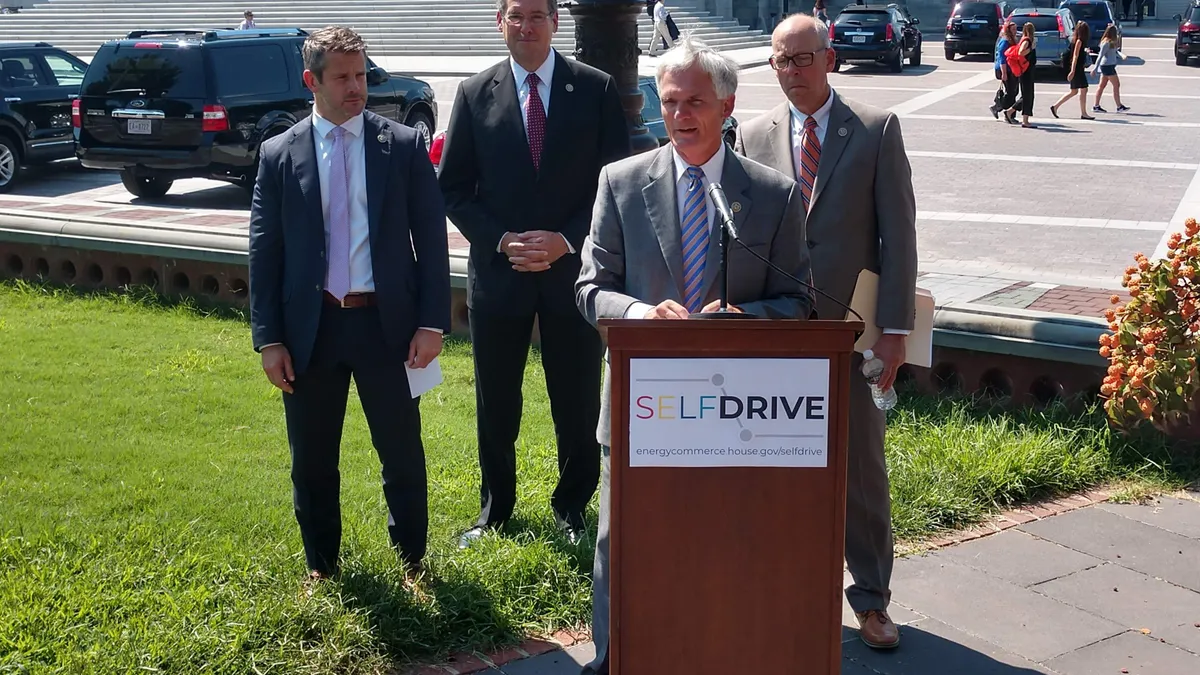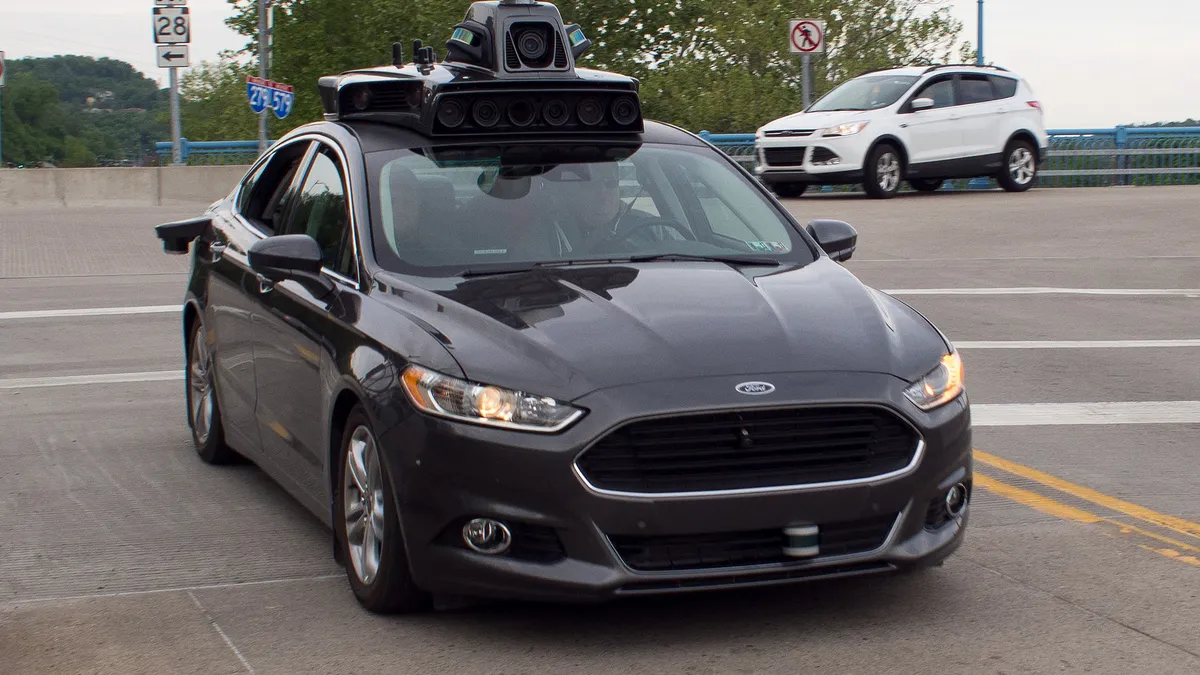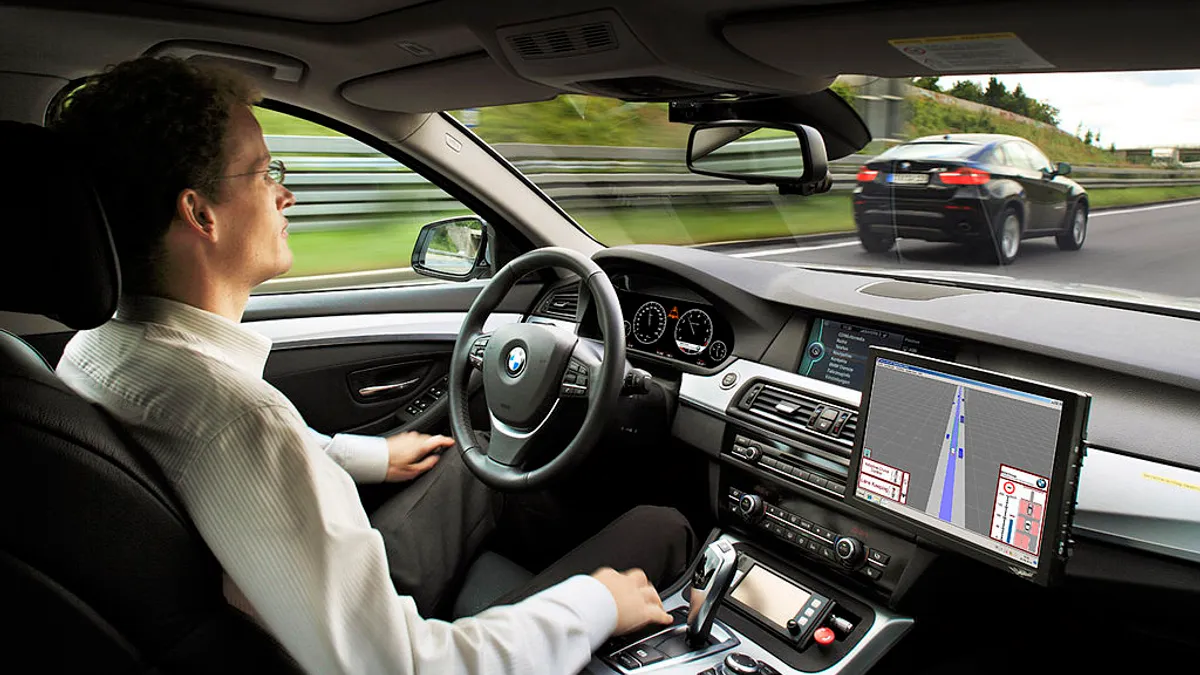Dive Brief:
- Federal legislation regulating autonomous vehicles (AVs) will go no further in this session of Congress, U.S. Sen. John Thune, R-SD, confirmed to Politico and others.
- The American Vision for Safer Transportation Through Advancement of Revolutionary Technologies (AV START) Act, of which Thune is a co-sponsor, had stalled in the Senate, though leaders had been hopeful of passage before Congress departs for the holidays. But after Senators passed a spending agreement to fund the government through Feb. 8, Thune said time had run out on the bill, even with negotiations on government spending still up in the air.
- Congress would have to try again starting in January, when the new session is sworn in. It means that the Safely Ensuring Lives Future Deployment and Research in Vehicle Evolution Act (SELF DRIVE Act), which passed the U.S. House of Representatives in 2017, goes no further.
Dive Insight:
After months of negotiations in which Senators were considering “different options” to get the legislation passed, the effort has failed, leading to criticism from leaders on the House side who had urged passage this summer to prevent the United States from losing an "innovation edge" against the likes of China, Singapore and Germany.
"Leaving the 115th Congress without getting self driving vehicle legislation across the finish line is more than just a missed opportunity, it threatens to derail efforts for the United States to be the leader in the advancement and development of this potentially life-saving technology," House Energy and Commerce Committee Chairman Greg Walden, R-OR, and Digital Commerce and Consumer Protection Subcommittee Chairman Bob Latta, R-OH, said in a joint statement.
Industry leaders have also expressed their disappointment at Congress failing to act decisively. In a tweet, Toyota’s director of technology and innovation policy Hilary Cain said it was a "missed opportunity" and that she thinks in the future everyone will "shake our collective heads over how Congress failed to get out ahead of this."
What a missed opportunity! I anticipate that all of us (yes, even the naysayers!) will look back on this years from now and shake our collective heads over how Congress failed to get out ahead of this and establish a federal framework for this emerging technology. https://t.co/N2JBCpa92o
— Hilary Cain (@HilaryCainDC) December 19, 2018
Passage of the AV START Act had been derailed in the Senate in part by several Democrats, who sent a letter expressing concerns on AV safety and implementation, and also by the American Association of Justice (AAJ), a group that represents trial lawyers and mobilized against various versions of the bill, including one that was released earlier this month. The group came in for criticism from the Competitive Enterprise Institute, a libertarian think tank, which said the AAJ was putting “its members’ narrow interests ahead of the lives of American road users.” Other stakeholders had also wrote to Senators urging a delay.
Congress will likely try again when the new session is gaveled in January, with House leaders blaming partisan bickering for the AV START Act failing and comparing it to their SELF DRIVE Act, which passed the House on voice vote and had progressed from committee unanimously. "The SELF DRIVE Act, which passed committee 54-0 and was approved by the House unanimously, serves as an example of how Congress should work in a bipartisan way to deliver results for the American people," Walden and Latta said.



